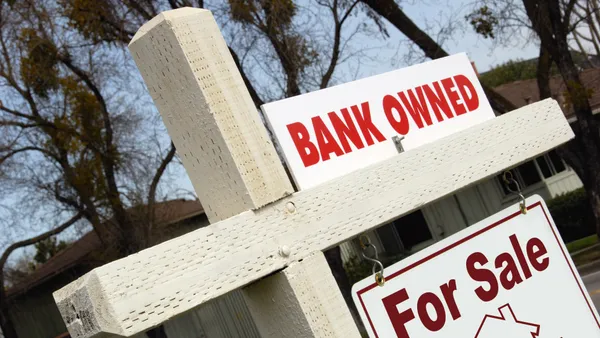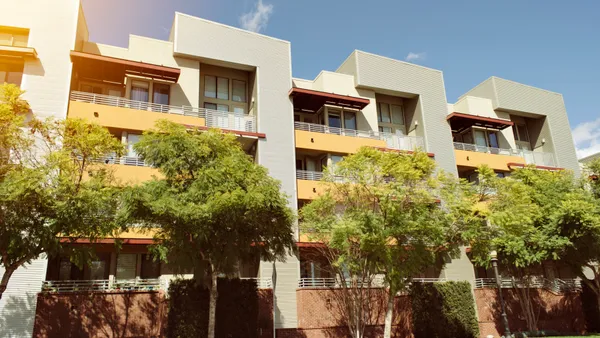Dive Brief:
- While multifamily fundamental growth held strong in the first half of 2022, government-sponsored mortgage lender Freddie Mac anticipates that the pace of growth will moderate through the rest of the year, and expects multifamily origination volume to contract to between $440 billion and $450 billion, down 8% to 10% from 2021.
- Inflation and volatile Treasury rates are among the major headwinds pushing against multifamily growth, according to the Freddie Mac Multifamily Midyear Outlook. The likelihood of a recession has risen from the first half of the year to the second, and rising interest rates have cut into multifamily volume as borrowers and investors avoid volatile environments.
- Despite these expectations, Freddie Mac maintains that fundamentals will remain strong, and gross multifamily income will outperform year-end expectations.
Dive Insight:
The lender’s origination volume projections for the second half of 2022 are contingent on the economy staying on a stable path over the rest of the year, with a strong labor market, only moderate price appreciation and a stable 10-year Treasury rate.
Rent growth rose 16% YOY in June 2022, and multifamily demand remains high despite rising costs, owing to strong household formations, according to the report. Counter to the mortgage lender’s expectations, demand hit an all time high of 700,000 units in the first quarter of 2022, then moderated to 430,000 in the second, it said.
Overall, Freddie Mac expects 6.8% gross multifamily income growth in 2022. While the national vacancy rate is projected to remain flat at 4.8%, this prediction includes vacancy rate drops in more than 60% of the markets that Freddie Mac covers, particularly in the Northeast and Midwest.
Gross incomes are expected to rise across all markets tracked by Freddie Mac, with Florida and Southwest markets expected to outperform the country as a whole. Jacksonville, Florida, tops expectations for gross income growth at 12.7%, followed by Albuquerque, New Mexico, at 12.5%. Minneapolis growth is expected to be the lowest at 3.1%.
Demand and rent growth are moderating, but fundamentals are still expected to remain strong into the second half of 2022. Looking ahead to 2023, Freddie Mac expects gross income growth to fall to 4.3% and vacancy rates to rise to 5.1%. While gross income growth will continue to contract, its growth rate will remain above the long-term average at 3.6%.
“We believe the multifamily industry is well positioned to weather the economic uncertainty and interest rate volatility impacting the broader economy throughout the rest of the year,” said Steve Guggenmos, vice president of multifamily research and modeling at Freddie Mac, in a company release. “...Rent growth and occupancy will still remain above their long run averages.”











